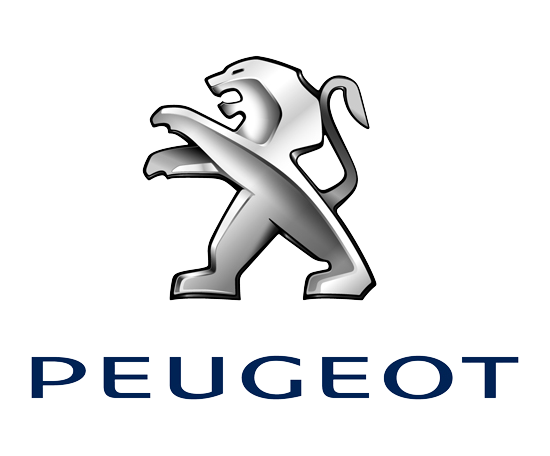- Global Shifts Detailed: Current affairs and pivotal news shaping the present landscape.
- Geopolitical Realignment and Shifting Power Dynamics
- Economic Volatility and the Future of Global Trade
- The Impact of Inflation and Interest Rate Hikes
- Technological Disruption and the Digital Transformation
- The Rise of Artificial Intelligence & Ethical Concerns
- Environmental Sustainability and Climate Change
Global Shifts Detailed: Current affairs and pivotal news shaping the present landscape.
The contemporary world is in a constant state of flux, shaped by interconnected events and rapidly evolving circumstances. Understanding these global shifts requires careful observation and analysis of current affairs. From political landscapes to news economic trends and technological advancements, staying informed is crucial for navigating an increasingly complex reality. This article delves into pivotal developments shaping the present landscape, examining their implications and potential future trajectories. The relentless stream of information, while often overwhelming, provides opportunities for greater understanding and informed decision-making. It is imperative to critically assess the evolving panorama of happenings.
Geopolitical Realignment and Shifting Power Dynamics
The existing world order, established in the aftermath of the Second World War, is undergoing a period of significant transformation. Traditional power structures are being challenged by the rise of new global actors, leading to a more multipolar world. The increasing influence of countries like China and India is reshaping the geopolitical landscape, creating both opportunities and tensions. This realignment is reflected in shifts in economic power, military capabilities, and diplomatic alliances. Furthermore, regional conflicts and instability continue to pose challenges to international security, demanding collaborative efforts to address shared threats.
The concept of sovereignty is also being redefined in the 21st century. Global issues such as climate change, pandemics, and economic crises necessitate international cooperation, often requiring nations to cede some degree of autonomy. This tension between national interests and global responsibilities is a defining characteristic of the current geopolitical climate. The rise of nationalism in some parts of the world further complicates this dynamic, creating a complex interplay of forces.
Understanding these shifting power dynamics is essential for comprehending the trajectory of international relations. The ability to forge strategic partnerships, navigate complex alliances, and address shared challenges will be crucial for maintaining peace and stability in the years to come. The ongoing competition for influence between major powers will continue to shape the global landscape, demanding careful diplomacy and a commitment to multilateralism.
| Country | GDP (USD Trillions, 2023) | Military Expenditure (USD Billions, 2023) |
|---|---|---|
| United States | 26.95 | 886 |
| China | 17.73 | 296 |
| Germany | 4.43 | 58 |
| Japan | 4.23 | 50 |
Economic Volatility and the Future of Global Trade
The global economy is facing a period of increased volatility, characterized by rising inflation, supply chain disruptions, and geopolitical uncertainty. The COVID-19 pandemic exposed vulnerabilities in existing economic systems, highlighting the need for greater resilience and diversification. Coupled with these events, the war in Ukraine has exacerbated inflationary pressures and disrupted energy markets, creating further economic instability.
The future of global trade is also uncertain. The rise of protectionism and trade wars poses a threat to the multilateral trading system, potentially leading to slower economic growth and increased geopolitical tensions. Finding ways to promote fair and sustainable trade practices is crucial for fostering economic prosperity and stability. This requires international cooperation and a commitment to resolving trade disputes through diplomatic channels.
Technological advancements, such as artificial intelligence and automation, are also transforming the global economy. While these technologies offer the potential for increased productivity and innovation, they also pose challenges related to workforce displacement and income inequality. Adapting to these changes will require investments in education, training, and social safety nets.
The Impact of Inflation and Interest Rate Hikes
One of the most pressing economic challenges facing the world today is rising inflation. Persistent increases in the general price level of goods and services erode purchasing power and can lead to economic hardship. Central banks around the world are responding to inflation by raising interest rates, a move designed to curb spending and cool down the economy. However, this approach also carries risks, as higher interest rates can slow economic growth and potentially trigger a recession. The delicate balancing act between controlling inflation and maintaining economic stability is a major concern for policymakers.
Supply chain disruptions, originating from the pandemic and exacerbated by geopolitical events, have played a significant role in driving up inflation. Shortages of key components and materials have led to higher production costs, which are ultimately passed on to consumers. Addressing these supply chain vulnerabilities requires diversifying sourcing, investing in domestic production capacity, and strengthening international logistics networks. It also calls for strategic investments to deter geopolitical risks.
The combination of inflation and rising interest rates creates a challenging environment for businesses and consumers alike. Companies face higher borrowing costs and reduced demand, while households struggle to cope with the rising cost of living. Navigating these economic headwinds will require sound financial planning, prudent investment decisions, and a commitment to long-term sustainability. It becomes vital to promote business support to help weather the economic turmoil.
Technological Disruption and the Digital Transformation
Technological advancements are driving a period of unprecedented change across all sectors of society. The rapid development of artificial intelligence, machine learning, and automation is transforming the way we work, communicate, and interact with the world. These technologies offer tremendous potential for innovation and economic growth, but they also raise important ethical and societal questions.
The digital transformation is impacting every aspect of life, from healthcare and education to transportation and entertainment. The rise of e-commerce, online learning, and remote work has accelerated the adoption of digital technologies, creating new opportunities and challenges. Ensuring equitable access to digital infrastructure and skills is crucial for bridging the digital divide and promoting inclusive growth.
However, the digital transformation also presents significant risks. Cybersecurity threats are becoming increasingly sophisticated, and the spread of misinformation and disinformation poses a threat to democratic institutions. Protecting data privacy and combating cybercrime are essential for maintaining trust and security in the digital age.
- Artificial Intelligence (AI)
- Machine Learning (ML)
- Blockchain Technology
- Internet of Things (IoT)
The Rise of Artificial Intelligence & Ethical Concerns
Artificial Intelligence (AI) is arguably the most transformative technology of our time. Its potential applications are vast, ranging from healthcare diagnostics and personalized education to autonomous vehicles and advanced robotics. As AI systems become more sophisticated, they are increasingly capable of performing tasks that were previously considered the exclusive domain of human intelligence. This raises exciting possibilities for solving complex problems and improving the quality of life.
However, the development and deployment of AI also raise ethical concerns. Algorithmic bias, job displacement, and the potential for misuse of AI technology are all important issues that need to be addressed. Ensuring fairness, transparency, and accountability in AI systems is crucial for safeguarding human rights and preventing unintended consequences. Ongoing discussions about ethical guidelines and regulatory frameworks are necessary to govern the responsible development of AI.
The impact of AI on the workforce is a particularly pressing concern. As AI-powered automation continues to advance, many jobs will be displaced, requiring workers to adapt to new roles and acquire new skills. Investing in education and training programs is essential for preparing the workforce for the future of work. Furthermore, innovative social safety net policies may be needed to support those who are displaced by automation. Continuous and increased digital literacy is a fundamental necessity.
Environmental Sustainability and Climate Change
Climate change is arguably the most significant challenge facing humanity today. The increasing concentration of greenhouse gases in the atmosphere is causing global temperatures to rise, leading to more frequent and severe weather events, rising sea levels, and disruptions to ecosystems. Addressing climate change requires urgent and concerted action on a global scale, including reducing greenhouse gas emissions, transitioning to renewable energy sources, and adapting to the impacts of climate change.
The transition to a sustainable economy presents both challenges and opportunities. Investing in renewable energy technologies, such as solar, wind, and geothermal, can create new jobs and drive economic growth. Promoting energy efficiency and reducing waste can also contribute to a more sustainable future. However, this transition requires significant investments and policy changes.
International cooperation is essential for addressing climate change effectively. The Paris Agreement provides a framework for global climate action but requires all nations to make ambitious commitments to reduce emissions. Strengthening this agreement and ensuring its full implementation is crucial for limiting global warming to manageable levels. Innovative technologies and policy interventions are vital routes to minimize ecological damage.
- Reduce Greenhouse Gas Emissions
- Transition to Renewable Energy
- Adapt to Climate Change Impacts
- Promote Sustainable Agriculture
The interconnectedness of global systems means that addressing these challenges requires a holistic and collaborative approach. Investments in sustainable infrastructure, innovative technologies, and international cooperation are crucial for building a more resilient and equitable future. Understanding these broad trends is important for taking informed action.


















